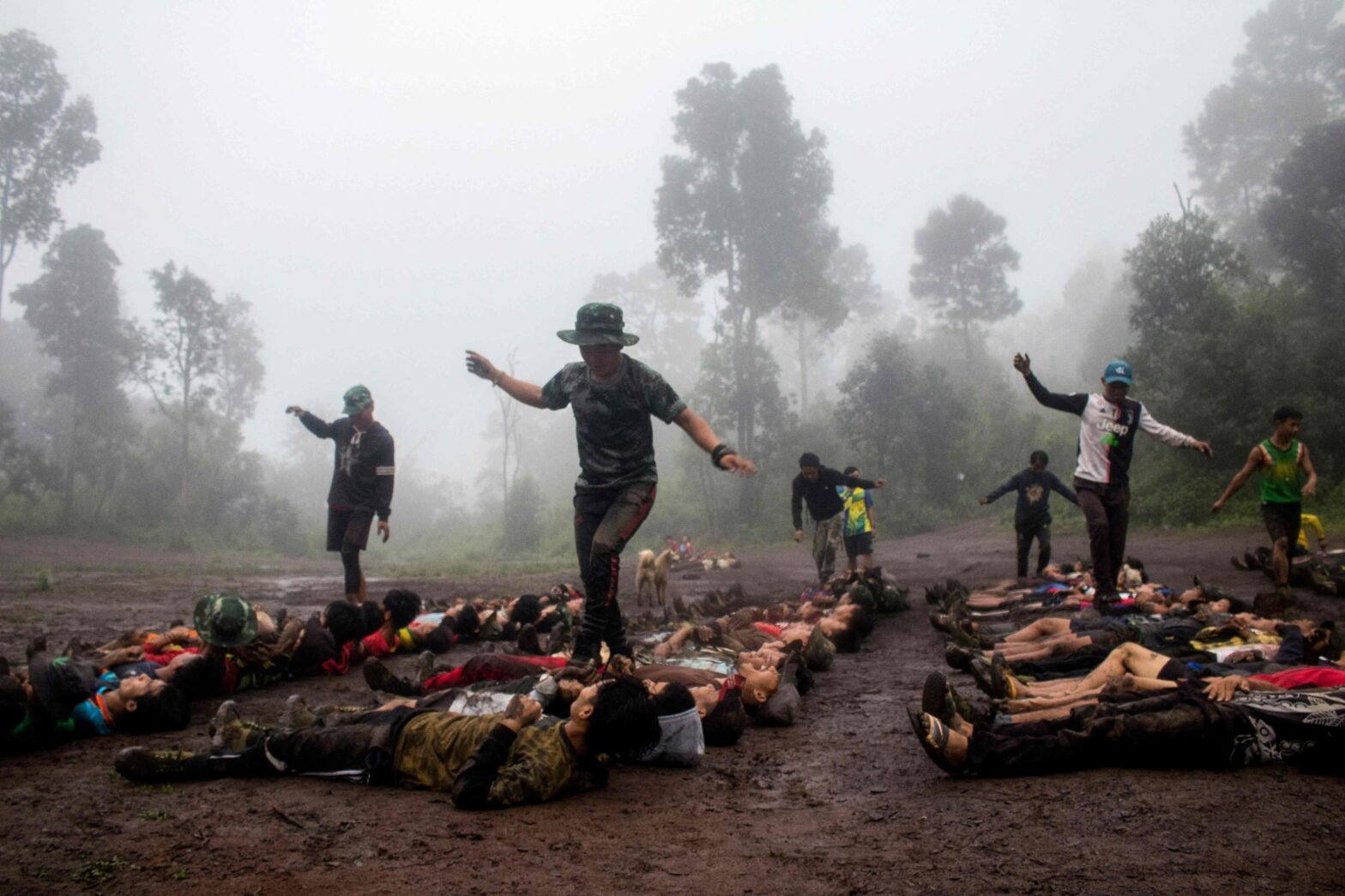The United Nations verified 3,688 cases of conflict-related sexual violence around the world last year, a significant increase of 50% from 2022. This is certainly a vast underestimate of the true number of cases.
A report by the UN secretary-general in April mentioned a number of specific countries where sexual violence – and conflict – have long been intertwined, including Congo, Haiti, Sudan and the Central African Republic.
Another country in the report, however, has received far less attention from the global community when it comes to sexual violence: Myanmar.
Since gaining independence from British in 1948, Myanmar has suffered through a series of brutal military regimes and ethnic armed conflicts. In the past three years, the country has descended into a full-blown civil war.
The military has used and continues to use sexual violence as a war tactic to punish and extract information from ethnic communities. Women and girls are the primary targets, although men and boys are often reported as victims.
In 2017, the military committed what the UN branded a “textbook” case of ethnic cleansing against the Rohingya Muslim minority in Rakhine state, which included widespread sexual violence.
Medics treating Rohingya victims at refugee camps in Bangladesh told Reuters hundreds of women had injuries from violent sexual assaults. Another group, Medecins Sans Frontieres, said more than half of the victims it had treated for sexual assaults were under the age of 18.
The military junta removed the democratic government in a coup in 2021. Since then there have been increasing reports of rape and sexual violence against women, men, girls, boys and LGBTQI+ individuals.
Female political activists and LGBTQI+ people in detention are particularly vulnerable to sexual violence. The UN reports that women, girls and transgender women face high risks of sexual violence, including gang rape, when travelling through checkpoints.
Last year, Naw Hser Hser, the first human rights activist to brief the UN Security Council since the coup, said sexual violence was the “modus operandi” of the military.
These crimes have predominantly been committed by Myanmar’s military. There have also been reports, though, of incidents involving the People’s Defence Force and ethnic armed organisations.
As the UN report in April noted:
In cases of kidnapping by armed actors, the wives of kidnapped men received calls demanding sexual acts in exchange for their husband’s release.
Conflict dynamics compounded by economic desperation continued to drive trafficking within, out of and into Myanmar, as part of which victims were raped, gang raped and forced into sexual slavery.
The report said some cases have been investigated by the National Unity Government, the shadow government formed after the coup.
Conflict-related sexual violence has been widely recognised in international law, including under the Geneva Convention 1948. Yet prosecutions are challenging.
Pramila Patten, the UN special representative on sexual violence in conflict, said in April that “far too many perpetrators of wartime sexual violence still walk free, while women and girls walk in fear”.
Indeed, in Myanmar, entrenched impunity for past atrocities has enabled members of the Tatmadaw (Myanmar’s military) to continue their abuses against civilians.
International and domestic women’s activists have presented overwhelming evidence of sexual violence in this conflict, as well as past conflicts. But the military denies its involvement in any of these crimes.
The UN also found investigations of sexual violence by the Myanmar authorities to be “grossly inadequate”. The UN noted that not a single “soldier or police officer was charged or prosecuted for sexual and gender-based crimes” committed against Rohingya civilians.
But is it even possible to enforce the rule of law and prosecute members of the Tatmadaw when the national judiciary is under the authority of the same military? In the current political context, seeking justice in domestic institutions is not only impossible, it could even bring more harm to survivors.
Some countries have imposed sanctions on the military for its alleged human rights abuses, but this approach is not enough.
In the absence of effective domestic prosecutions, evidence of these crimes must continue to be collected for use in potential future cases in international tribunals.
Local women’s organisations are key players in this effort, as is the Independent Investigative Mechanism for Myanmar, set up by the UN Human Rights Council in 2018 to collect evidence of international law violations.
Yet they work in an extremely hazardous and difficult environment. Among the challenges are:
limited access to parts of the country controlled by the military
widespread displacement of the civilian population
frequent electricity and internet blackouts
the shame and social stigma many victims feel
lack of resources to do their work.
So, what can the international community do?
Building more partnerships to collect evidence with local actors is important. This will equip them with the best practices for documenting sexual violence in the conflict. It will also support their advocacy efforts, including those directed at regional bodies like ASEAN.
In addition, addressing survivors’ most urgent needs – such as access to health services and psychological support – must be central to discussions on humanitarian aid for Myanmar among international donors.





















